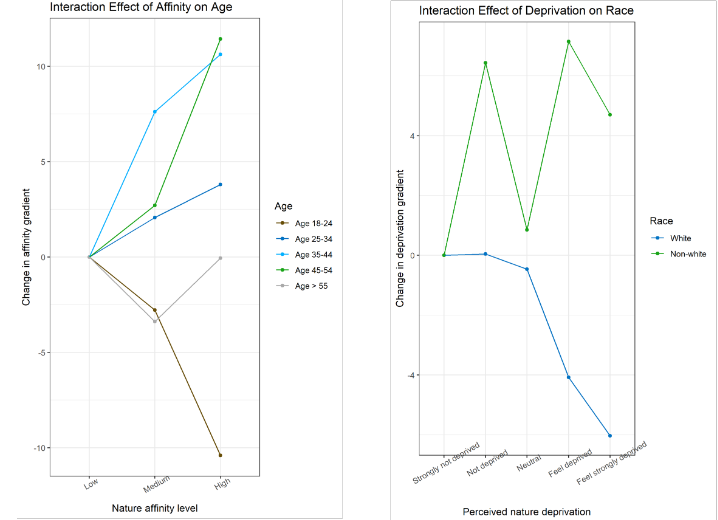Shelter-in-place aimed at slowing COVID-19 transmission has altered nature accessibility patterns, creating quasi-experimental conditions to assess if retracted nature contact and perceived nature deprivation influences physical and emotional wellbeing. We measure through survey methods how pandemic mandates limiting personal movement and outdoor nature access effect self-assessed nature exposure, perceived nature deprivation, and subsequent flourishing as measured by the Harvard Flourishing Index. Results indicate that perceived nature deprivation strongly associates with neighborhood nature contact, time in nature and access to municipal nature during the pandemic, after controlling for shelter-in-place mandates, job status, household composition, and sociodemographic variables. Our hypothesis that individuals with strong perceived nature deprivation under COVID-19 leads to diminished wellbeing proved true. Interaction models of flourishing showed positive modification of nature affinity with age and qualitative modification of nature deprivation with race. Our results demonstrate the potential of local nature contact to support individual wellbeing in a background context of emotional distress and social isolation, important in guiding public health policies beyond pandemics.

